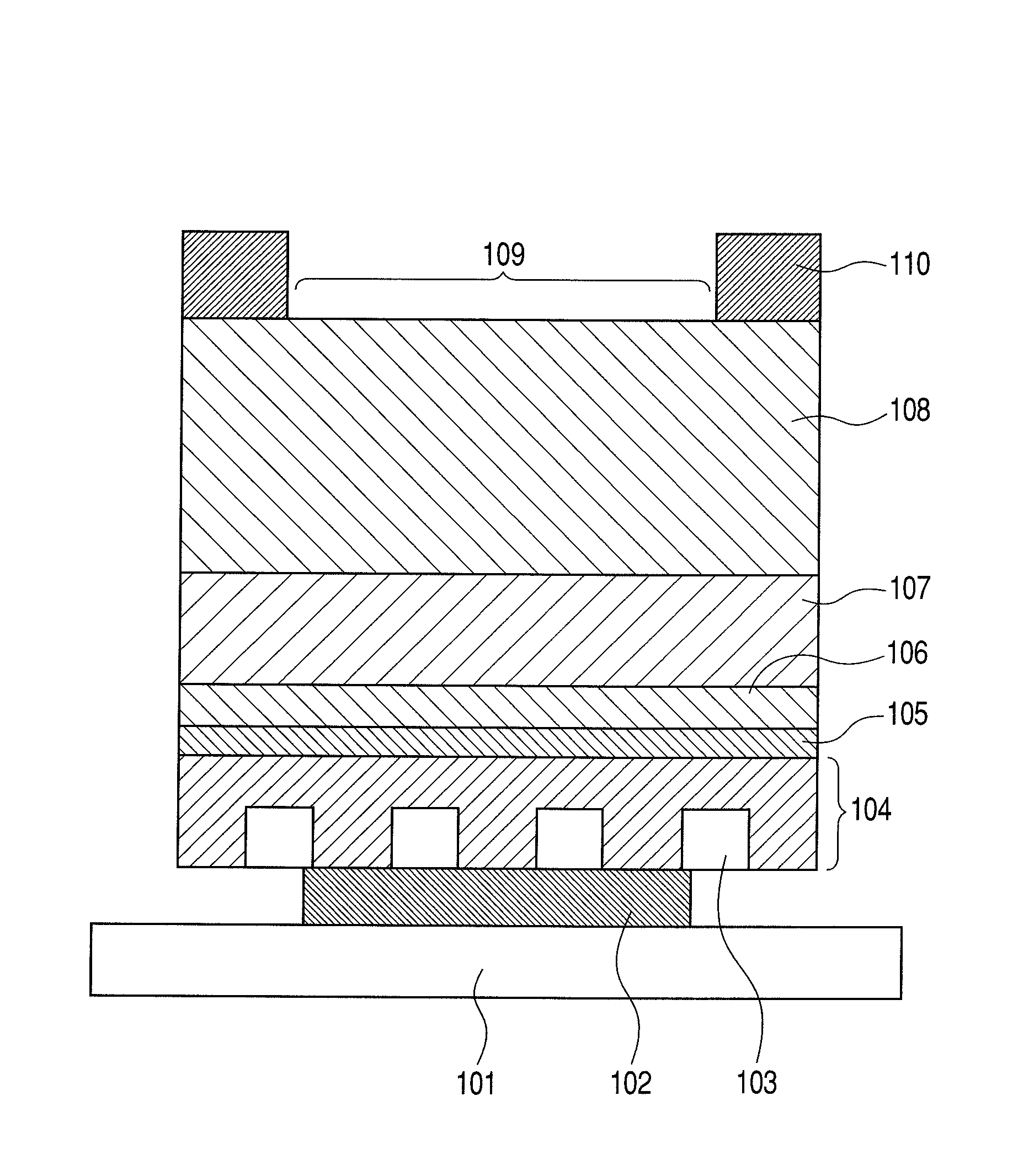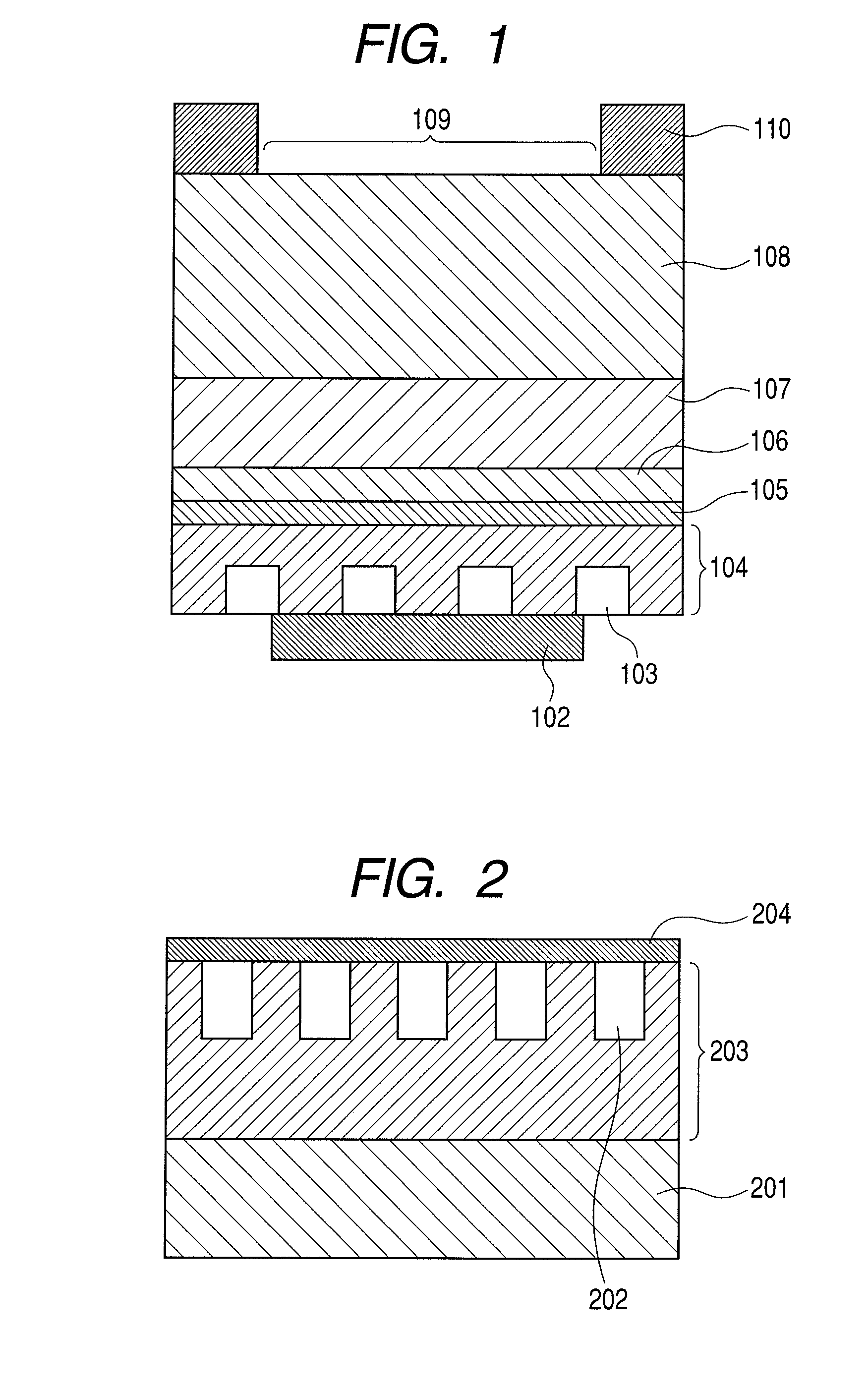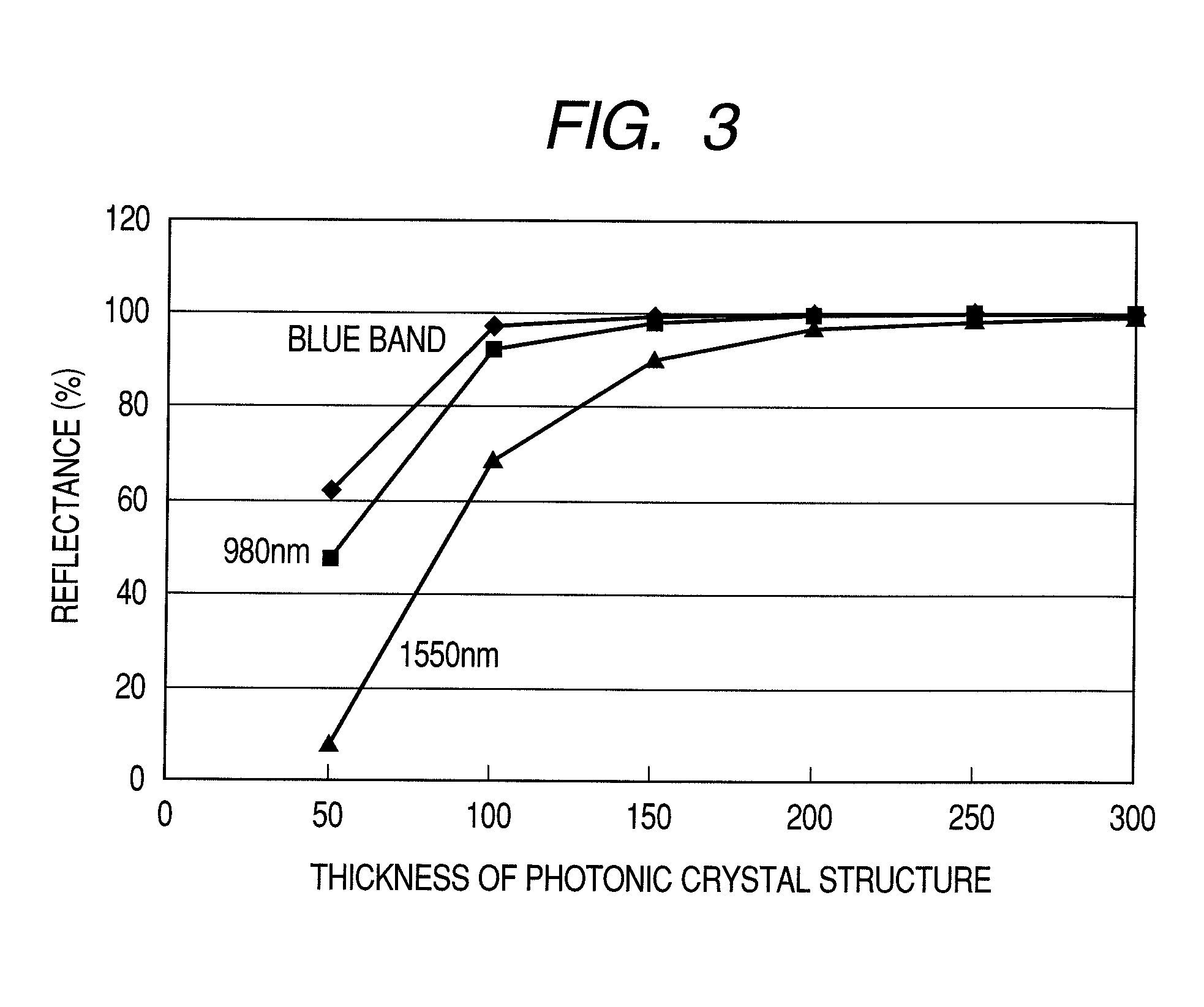Surface emitting laser
a laser and surface technology, applied in the field of surface emitting lasers, can solve the problems of increasing voltage, reducing power efficiency, and displaying higher electric resistance, and achieve the effect of lowering the electric resistance originating
- Summary
- Abstract
- Description
- Claims
- Application Information
AI Technical Summary
Benefits of technology
Problems solved by technology
Method used
Image
Examples
exemplary embodiment 1
[0062]In Exemplary embodiment 1, a photonic-crystal surface emitting laser to which the present invention is applied will be described.
[0063]FIG. 4 illustrates a schematic sectional view for describing a structure of a photonic-crystal surface emitting laser to which the present invention is applied.
[0064]In FIG. 4, the same element as that illustrated in FIG. 1 is designated by the same reference numeral. An SiC substrate 101 has an electrode pattern on its surface.
[0065]The surface emitting laser of the present embodiment is constituted by a plurality of semiconductor layers including a photonic crystal structure 103 laminated on a GaN substrate 108, and emits a laser beam having a wavelength λ from the rear face side with respect to the laminated face of the semiconductor layers.
[0066]Specifically, a p-type electrode 102 is formed so as to contact with a p-GaN layer 104 (photonic crystal layer) in which the photonic crystal structure 103 has been produced up to the middle of the ...
exemplary embodiment 2
[0088]In Exemplary embodiment 2, a structure example including a multilayer reflector in the photonic crystal layer will now be described.
[0089]In the present exemplary embodiment, the multilayer reflector formed of semiconductors is provided in the photonic crystal layer, and accordingly can enhance the light extraction efficiency.
[0090]FIG. 6 illustrates a schematic sectional view for describing a structure of a surface emitting laser in the present exemplary embodiment.
[0091]In FIG. 6, the same element as that illustrated in FIG. 1 is designated by the same reference numeral. The structure of the present exemplary embodiment has a semiconductor DBR 605 formed of laminated mirrors of a pair of two types of semiconductor layers 602 and 603 having mutually different refractive indices in the photonic crystal layer, which is a different point.
[0092]In the present exemplary embodiment, the first semiconductor layer 602 of the semiconductor DBR 605 is made from the same material as tha...
exemplary embodiment 3
[0098]In Exemplary embodiment 3, a structure example will now be described in which a multilayer reflector formed of semiconductors is provided in a region on the laser beam emission side, which region is farther than the p-type semiconductor layer in the above described laminated structure.
[0099]A photonic-crystal surface emitting laser in the present exemplary embodiment is structured so that a DBR is formed in the n-side, and so that the Q-value and extraction efficiency can be controlled.
[0100]FIG. 7 illustrates a schematic sectional view for describing a structure of a photonic-crystal surface emitting laser according to the present exemplary embodiment.
[0101]In FIG. 7, the same element as that illustrated in FIG. 1 is designated by the same reference numeral.
[0102]The present exemplary embodiment has basically the same structure as in Exemplary embodiment 1, but is different from Exemplary embodiment 1 in that a DBR 703 is provided on an n-cladding layer.
[0103]In the present e...
PUM
 Login to View More
Login to View More Abstract
Description
Claims
Application Information
 Login to View More
Login to View More - R&D Engineer
- R&D Manager
- IP Professional
- Industry Leading Data Capabilities
- Powerful AI technology
- Patent DNA Extraction
Browse by: Latest US Patents, China's latest patents, Technical Efficacy Thesaurus, Application Domain, Technology Topic, Popular Technical Reports.
© 2024 PatSnap. All rights reserved.Legal|Privacy policy|Modern Slavery Act Transparency Statement|Sitemap|About US| Contact US: help@patsnap.com










